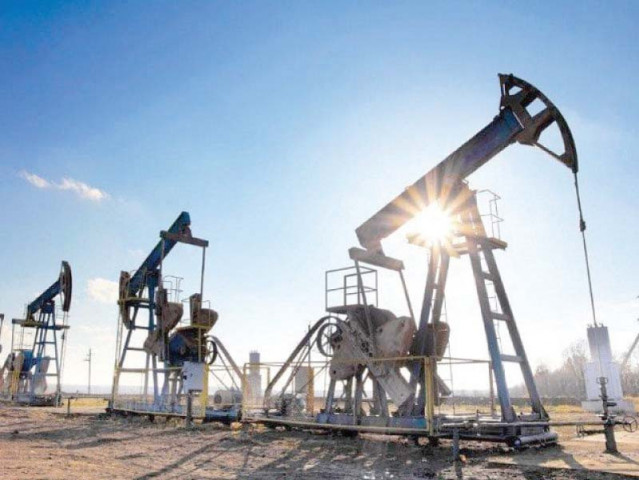$10b deal forged with Saudi Arabia
Pakistan to contribute 70% equity to mega refinery project in Gwadar

In a groundbreaking move, five Pakistani state-owned companies are set to collaborate with Saudi Arabia to execute a $10 billion refinery project in Pakistan.
According to sources, Saudi firm Aramco was initially hesitant to inject the entire equity into the multibillion-dollar refinery project, leading the Pakistani government to decide on a joint venture with key Pakistani state-owned companies. Under this plan, Pakistan State Oil (PSO), Pak Arab Refinery (Parco), Oil and Gas Development Company Limited (OGDCL), Pakistan Petroleum Limited (PPL), and Government Holdings Private Limited (GHPL) will contribute 70% equity, while Aramco will inject the initial 30% equity into the project.
The MoU to finalise the collaboration is set to be signed on Thursday (today), cementing the partnership between the two nations. Despite past tensions between Pakistan and Saudi Arabia, the project has gained momentum, with Pakistani authorities actively working on it and even receiving a visit from the Saudi Ambassador to Pakistan at the site of the proposed refinery in the Gwadar area of Balochistan.
The project had previously faced challenges due to strained relations between past governments of Pakistan and Saudi Arabia. However, the current Pakistani government, backed by the army chief’s support, has been actively promoting investment in Pakistan, seeking to attract foreign ventures.
The proposed joint venture will establish a mega refinery in Gwadar with a capacity of 400,000 barrels per day. The government of Pakistan has already approved a refinery policy for new projects in the country, including tax exemptions to encourage investors to set up refineries. However, it has yet to approve a refinery policy for existing refineries to facilitate the establishment of upgradation plants. Existing refineries in Pakistan claim that they can meet the country’s fuel demand if granted incentives under the new refinery policy for their expansion.
Apart from economic benefits, this partnership holds strategic significance in strengthening friendly ties with Saudi Arabia and the United Arab Emirates (UAE). Both countries have previously provided financial support to Pakistan during periods of economic uncertainty, depositing dollars in the country’s central bank to help secure an International Monetary Fund (IMF) bailout package.
Pakistani authorities have recently awarded one terminal to the UAE, and plans are underway to award two other terminals in Karachi. These initiatives are not solely focused on attracting investment but also aimed at bolstering bilateral relations with these two Muslim countries.
Collaborative efforts between teams from Pakistan and Saudi Arabia have been ongoing since last year to finalise a commercial agreement on the refinery project, especially before Prime Minister Shehbaz Sharif’s visit to Riyadh.
The ambitious venture was first announced in January 2019 during Saudi Arabia’s Energy Minister Khalid Al-Falih’s visit to Pakistan. The Arab nation expressed its intentions to establish a $10 billion oil refinery at Gwadar, a strategic deep-water port in Pakistan. However, the project faced challenges related to financial viability, leading to its shelving for a period.
As Pakistan and Saudi Arabia inch closer to solidifying the deal, it opens up opportunities for enhanced economic cooperation and mutual benefits. The successful implementation of this project could mark a milestone in their bilateral relationship and foster stronger economic ties between the two nations.
During Saudi Crown Prince Mohammad bin Salman’s visit to Pakistan in February 2019, an investment package worth $20 billion was announced, earmarking $10 billion for the construction of the mega oil refinery in Gwadar. However, subsequent differences with the Pakistan Tehreek-i-Insaaf (PTI) government led to a return of the $3.2 billion bailout package.
Following the Arab nation’s offer to provide incentives for new refinery projects, the Petroleum Division expedited work on a new refinery policy, leading to revived interest from Saudi Arabia. Pakistan and Saudi Arabia are now inching towards signing a multi-billion-dollar deal for the long-delayed refinery project, indicating a significant step forward in their bilateral relations.
Officials assert that while Parco, with its current capacity of 100,000 barrels per day, is the largest oil refinery in Pakistan, a refinery with a capacity of 400,000 barrels per day is crucial to meet the country’s growing fuel demand. Presently, exports of crude oil from Saudi Arabia are required to fulfil Parco’s needs.
Industry experts believe that if existing refineries increase their capacity to 400,000 barrels and an additional refinery is established with the same capacity, it will sufficiently meet the country’s fuel demand until 2040.
Published in The Express Tribune, July 27th, 2023.
Like Business on Facebook, follow @TribuneBiz on Twitter to stay informed and join in the conversation.



















COMMENTS
Comments are moderated and generally will be posted if they are on-topic and not abusive.
For more information, please see our Comments FAQ